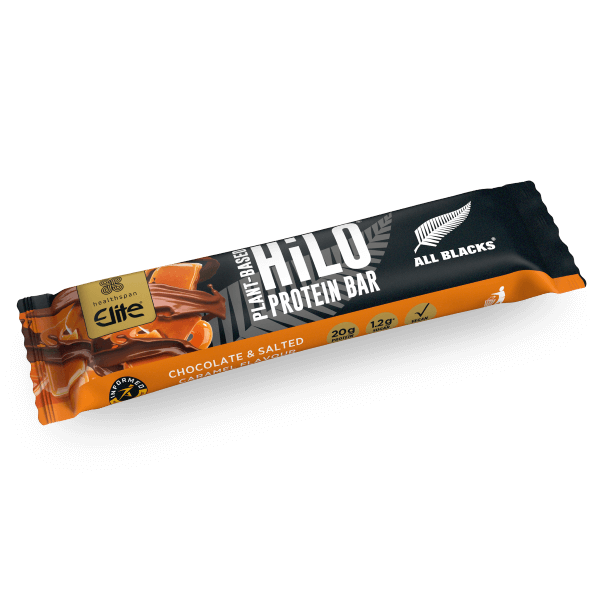Not all protein bars are created equal. Sports Nutritionist Rob Hobson outlines why you might need protein bars to supplement your nutritional needs, the best time to take them, and what ingredients you should look for to make sure the bars you choose are as healthy as possible.
Why might you need a protein bar?
Convenient protein source
Protein bars will supply you with a quick and convenient source of protein that can be eaten on the go between meals, as a meal replacement, or to support your exercise and recovery.
Recovery from exercise
It's well understood that protein is essential for the growth and repair of muscle tissues after training. To support this, protein should be consumed an hour after exercise and drip-fed throughout the day. Protein bars can help you do this.
Weight management
Protein bars can be a good option for people trying to maintain a healthy weight. This macronutrient has been shown to promote a feeling of fullness, and any bars are available as sugar-free options.
Build muscle mass and gain weight
When you work out, your muscles experience minor tears and damage; protein is needed to repair and rebuild those muscles. If you don't consume enough protein, your muscles may not be able to recover properly, which can lead to slower gains in muscle mass.
Consuming a protein bar with a high amount of protein per serving can ensure you are getting enough protein of the right quality to support muscle growth.

Nutritionist Rob Hobson describes what protein is, why it's important, how much you need to stay healthy and how to make sure you have enough in your diet.
Read more
When should you eat protein bars?
Protein bars can be eaten at any time, but you may want to coordinate your intake with your nutrition goals, or save them for during the day when you may not be able to prepare the right food to maintain your protein intake.
Pre-workout
Eating a protein bar before a workout can help provide energy and ensure your muscles have the necessary nutrients to perform during your exercise session. Some protein bars may also contain ingredients like caffeine or creatine, which can further enhance your performance.
Post-workout
Eating a protein bar after a workout can help muscle recovery and repair. Your muscles need protein to rebuild and recover after a workout, so consuming a protein bar within 30-60 minutes of exercising can be beneficial.
Snack between meals
Protein bars can be a convenient and satisfying snack option, especially if you are trying to manage your weight or increase your protein intake throughout the day. Eating a protein bar between meals can help keep you feeling full.
Finding the healthiest protein bars
Protein bars vary widely in their ingredients, and this has an effect on the health benefits and drawbacks they may have.
Protein Content
The main purpose of a protein bar is to provide protein, so this is the first thing to consider. Look for bars that have at least 10g of protein per serving. Aim for bars with 15-20g of protein per serving to get the largest benefit.
If you're considering a vegan protein bar, make sure it contains protein that will supply you with the essential amino acids, especially leucine, which helps to trigger muscle protein synthesis. These sources of protein include pea and soya.
Carbohydrate Content
You should also consider the carbohydrate content of a protein bar, especially if you're watching your carb intake. Look for bars with less than 30g of carbs per serving. If you're on a low-carb diet such as keto, you can find bars with even smaller amounts of carbohydrates to fulfil your dietary needs.
Sugar Content
Many protein bars contain significant added sugar, which can undermine your health goals. It's best to look for bars with the lowest sugar possible, as these will give you a healthier offering. Some protein bars use natural sweeteners like stevia or xylitol, an alternative sweetener to sugar.
Many sweeteners are a type of chemical called polyols, which can cause gastrointestinal (GI) problems such as gas and bloating if taken in excess quantities. Some bars have up to 18g of polyols per bar, but others, such as Healthspan Elite's HiLO range, have less than half that, so check the label. Read more about what polyols are and if they are good for you.

Elite All Blacks Plant-Based HiLo Protein Bar
Delicious protein bars packed with 20g protein
- Chocolate and Salted Caramel, Black Forest Gateau and White Chocolate Raspberry flavours
- 6.7g fibre per bar, only 3.5g sugar
Fibre Content
Fibre is an essential nutrient that helps to regulate digestion and keep you feeling full. In the UK, many people do not get enough fibre in their diet, so it's a good idea to look for foods that can help increase your intake. Look for bars with at least 3g of fibre per 100g.
Other ingredients
Have a good look at the full protein bar ingredients list. Try to choose a bar that has a limited number of ingredients. The exception is bars that are fortified with vitamins and minerals, but these should be easy for you to identify.
Taste and Texture
This one is up to you and is a case of personal preference. Some bars are chewy, while others have a denser texture. Some bars also have a drier texture than others. There are also many different flavours to choose from, again down to personal preference. Bear in mind that a bar's nutritional information may vary depending on its flavour.
Vitamins and minerals
Some protein bars add additional vitamins and minerals to their blends, which can support your health in many ways. Commonly added nutrients include B vitamins, which are used in the body to support the conversion of food into energy.
Identifying why and when you will be using protein bars will help you to understand what you need to meet your health and exercise goals, and you can then check this against the information on the protein bar's label to help you to make an informed choice about your product.







